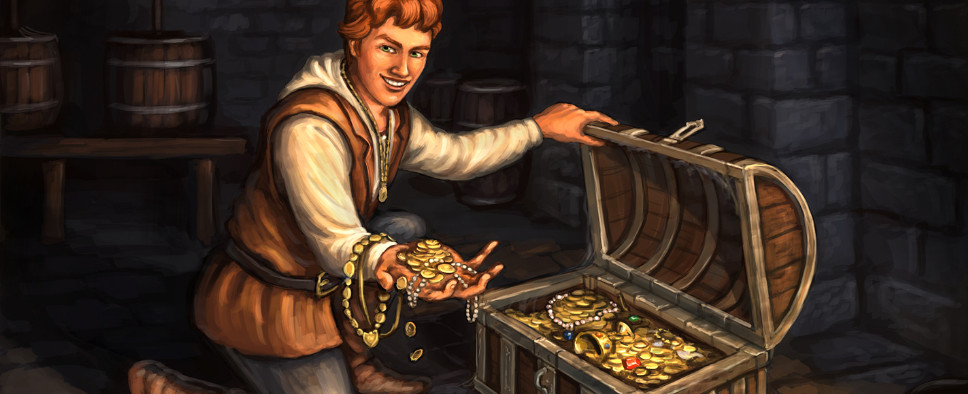Hero-U: Rogue to Redemption Postmortem
-
Category: News ArchiveHits: 1529

Hero-U: Rogue to Redemption, Transolar Games' successor to the Quest for Glory series, launched back in July 2018 following two crowdfunding campaigns and over six years in development. During that time, not everything went according to plan, and if you'd like to learn more about the game's bumpy road to release and what, looking back at it, the developers think they did right and wrong while working on Hero-U, you should check out this Gamasutra blog post. A few sample paragraphs:
What We Did Right
1. Perfectionism
The major challenge of Hero-U was that the game was not ever going to be Quest for Glory. The Coles were new to producing a game; we didn’t have the resources and structure of Sierra. Corey based the budget on the early low-budget Quest for Glory games, which used 16-color art and relied on Sierra’s development tools. Fans wanted a game like Quest for Glory IV, which had a $1.5 million budget in 2015 dollars. The Kickstarter provided 25% of that.
I had backed Jane Jensen’s Moebius. The game was released on time, with a $300,000 budget, but it suffered due to the inevitable comparisons to Gabriel Knight. Hero-U was even more ambitious; it needed to be an adventure game and a roleplaying game, have the same humor and heart as the Quest for Glory games, and allow nonlinearity and choices in how to play your character. We could have shipped sooner by cutting features; the Coles chose not to do this. If they had, it would not have come close to the expectations of Quest for Glory.
2. Uniqueness
Simply put, there’s nothing on the market that’s quite like Hero-U. It’s not another Quest for Glory at all; Quest for Infamy and Heroine’s Quest come much closer to the Quest for Glory style and mechanics. It’s a fantasy school simulator; not another rags-to-riches save-the-world RPG. While you can explore dungeons and fight in combat, you never leave the school grounds, there’s no epic villain to defeat, and you don’t save the world. At least not in this game.
The player spends most of their time going to class and learning how to be a hero, both in theory and in practice. It’s been compared to the Sims and Harry Potter; but there’s really nothing like this.
[...]
Moving Forward
While we’ve struggled to learn from our mistakes, navigate the world of indie game marketing and distribution, and keep Transolar Games around, our fans keep asking us when the next Hero-U game - subtitled Wizards Way - will be out. We have postponed development on that game so far because it will be another expensive, high-risk development project.
Instead, we’re working on a much smaller game, called Summer Daze at Hero-U, with a smaller development team and a much shorter development process. This gives us room to experiment and fail rapidly, rather than make the same mistakes over the next five years. Summer Daze will use a different scripting engine, a streamlined time mechanic, and 2D art. All of these things would have shortened the development time of Hero-U; but then it wouldn’t have lived up to the expectations for “a new Quest for Glory game.”
Related Games:
Hero-U: Rogue to Redemption

